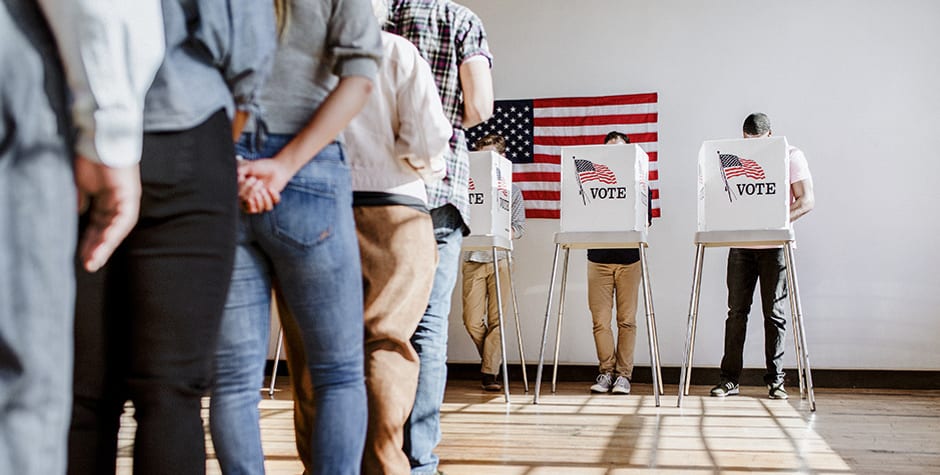The ACLJ and 57 Members of Congress File Brief Against the Biden Administration's Attack on Election Integrity
In June, the Biden Administration sued the State of Georgia to challenge certain provisions of the State’s election reform law (Senate Bill 202) that was enacted earlier this year. Some of the provisions at issue in the case include a ban on government entities mailing unsolicited absentee ballot applications, modifications of the identification requirements and timeframes for applying for absentee ballots, and regulations of the use of absentee ballot drop boxes.
The Biden Administration has made it clear that they want Washington, D.C., to take over Georgia elections. The lawsuit asks the court to prevent the challenged parts of the law from being enforced, authorize the appointment of federal election observers for Georgia elections, and require certain types of future changes to Georgia election law to be pre-cleared by the federal government.
The ACLJ, on behalf of more than 647,000 of our supporters and 57 Members of Congress, recently filed an amicus brief that emphasized the substantial constitutional authority of Georgia, and other states, to protect the integrity of their elections. The brief explained that the Constitution’s Elections Clause (Art. I, § 4, Cl. 1) provides that state legislatures, not the President or his Administration, have the primary responsibility and authority to regulate the times, places, and manner of holding elections.
In other words, our brief emphasized that the lawsuit is not about the hotly debated question of what kinds of election regulations should be enacted, but rather who gets to make that decision. The Constitution clearly entrusts that decision to state legislatures, not federal bureaucrats.
Additionally, the brief highlighted many decisions of the Supreme Court and other courts that have recognized that “there must be a substantial regulation of elections if they are to be fair and honest and if some sort of order, rather than chaos, is to accompany the democratic processes.” In a recent decision, the Court reiterated that states have a “strong and entirely legitimate state interest” in preventing voter fraud, which can “undermine public confidence in the fairness of elections and the perceived legitimacy of the announced outcome.”
Our brief catalogued numerous examples of proven voter fraud over the past several years, which was often connected to the misuse of absentee ballots. As noted in our brief, even the New York Times previously acknowledged that there is a “‘bipartisan consensus’ that ‘voting by mail . . . is more easily abused than other forms’ of voting and that ‘[a]bsentee ballots remain the largest source of potential voter fraud,’ which is ‘why all the evidence of stolen elections involves absentee ballots and the like.’” Furthermore, our brief explained that a state is not required to conclusively prove the existence of widespread fraud or voter intimidation within its borders before it is permitted to enact commonsense, non-discriminatory election regulations.
Moreover, our brief noted that election regulations are not rendered unconstitutional by the fact that they may require eligible voters to take reasonable steps in order to exercise their right to vote (requesting an absentee ballot, obtaining and presenting a photo ID, etc.). Rather, the Supreme Court has repeatedly held that the right to vote is not violated where any burdens imposed by voting regulations would be “modest,” “limited,” “unremarkable,” or a “[m]ere inconvenience,” or would fall within “the usual burdens of voting.”
We are hopeful that the court will ultimately hold that state legislatures, not federal bureaucrats, have the authority to decide what kind of reasonable election regulations should be enacted and enforced.
At the ACLJ, we will continue to follow, and file in, this and other similar cases across the nation to uphold the Constitution and the integrity of our elections.
